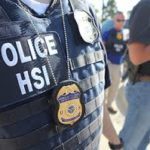
First and foremost, the common sense document calls for communication with the public before implementing a drone program, stating:
The public may better understand and appreciate an agency’s reasons for establishing an unmanned aircraft program with a clearly stated and plainly worded purpose…. Identify the challenge that prompted your agency to create an unmanned aircraft program and how unmanned aircraft systems will assist in addressing that challenge….Describe the primary purpose(s) of your unmanned aircraft program online and/or make this information publicly accessible, while not revealing information that could reasonably be expected to compromise law enforcement or national security.
The document describes the desired structure for a public agency drone program, including a single point of responsibility for civil liberties compliance, a training program, and a robust system for dealing with public complaints.
As any drone program offers the opportunity for gathering data that was previously unavailable to law enforcement, the guidance is heavily focused on privacy concerns, and the storage and sharing of data obtained by drone. “Collection, use, dissemination, and retention of unmanned aircraft system-recorded data should be limited to data legally acquired and relevant to the entity’s operations,” the document states. “Recorded images of individuals should not be retained beyond a reasonable period as defined by existing agency/departmental policy unless there is authorization based on a legal, policy or operational purpose.”
While the guidance document offers a beginning in helping law enforcement agencies to handle drone programs appropriately, some civil liberties organizations fear that it may not go far enough, as it does not address the potential investigative use of drones. The Electronic Frontier Foundation said in a published statement:
By declining to address investigative uses of drones, the guidance sidesteps an elephant in the room: the constitutional requirement for a judicial warrant… One might hope that only thoughtful and conscientious professionals could get their hands on powerful tools by working for a public agency. Our Founders expected otherwise and created the warrant requirement to ensure the legitimacy of both criminal and non-criminal investigations by forcing the government to justify them.
While the details and permissions are certain to be argued for a long time to come, the guidance from DHS demonstrates a growing expectation that drones will be commonly implemented by law enforcement agencies in the near future.

Miriam McNabb is the Editor-in-Chief of DRONELIFE and CEO of JobForDrones, a professional drone services marketplace, and a fascinated observer of the emerging drone industry and the regulatory environment for drones. Miriam has penned over 3,000 articles focused on the commercial drone space and is an international speaker and recognized figure in the industry. Miriam has a degree from the University of Chicago and over 20 years of experience in high tech sales and marketing for new technologies.
For drone industry consulting or writing, Email Miriam.
TWITTER:@spaldingbarker
Subscribe to DroneLife here.